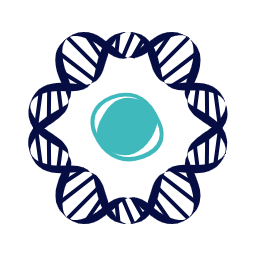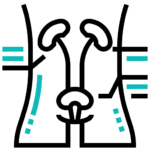Hair Loss

Hair loss, or alopecia, can occur due to various factors such as genetics, hormonal changes, medical conditions, medications, and stress. Common types include male and female pattern baldness, alopecia areata, and telogen effluvium. Treatment options range from medications and topical solutions to hair transplant surgery, depending on the underlying cause.
Homeopathy Treatment for Hair Loss
Homeopathy Treatment offers a natural and holistic approach to hair loss treatment, focusing on addressing the root cause rather than just symptoms. It is safe, non-invasive, and free from side effects. Homeopathic remedies stimulate hair regrowth, improve scalp health, and strengthen hair follicles. Common causes like stress, hormonal imbalances, and nutritional deficiencies are effectively treated with personalized homeopathic solutions.
How We Treat Diseases?
OUR PROCESS
What we do
We Care About You
We provide personalized care for conditions, focusing on treating the root cause, not just the symptoms, through a holistic approach.
We give you
Homeopathic Advice
Our expert team offers tailored homeopathic solutions for diseases, helping to restore your body’s natural balance without side effects.
We offer professional
Homeopathic Services
We provide comprehensive diagnostic and homeopathic treatment services to manage and improve conditions, supporting your journey to wellness.
Introduction to Hair Loss

Understanding Hair Loss:
Providing an overview of what hair loss is and how it affects individuals psychologically and emotionally.

Types of Hair Loss
Exploring different types of hair loss, including male pattern baldness (androgenetic alopecia), female pattern hair loss, alopecia areata, telogen effluvium, and traction alopecia.

Causes of Hair Loss
Discussing factors that contribute to hair loss, such as genetics, hormonal changes (e.g., dihydrotestosterone in male pattern baldness), medical conditions (e.g., thyroid disorders), medications (e.g., chemotherapy drugs), and lifestyle factors (e.g., stress, diet).


Mechanism of Hair Loss
Explaining how hair loss occurs, including the miniaturization of hair follicles, disruption of the hair growth cycle, autoimmune attacks on hair follicles, and physical damage to the hair shaft.

Common Symptoms of Hair Loss
Detailing the common symptoms associated with different types of hair loss, such as gradual thinning of hair, receding hairline, bald patches, and excessive shedding of hair.

Diagnosis of Hair Loss
Discussing methods used to diagnose hair loss, including medical history evaluation, physical examination, scalp biopsy, blood tests, and sometimes imaging studies.
Treatment

Gynaecological Issues
Women in all stages of their lives from infancy through old age experience a full range of emotional.
Musculoskeletal Issues
Musculoskeletal disorders can result from repetitive or postural strain, sudden exertion.
Headaches
Most people have headaches from time to time, but if you with headaches.
Common Cold & Cough
Runny nose, sore throat and headaches are some of the common symptoms of cough and cold.
Immunity
The immune system consists of special organs, cells and chemicals which help to fight the infections.
Lifestyle Diseases
Lifestyle disease literally means a disease acquired by a person depending on the lifestyle one leads.
Urinary Infection
Urinary tract infection involves infection in any part of the urinary system and is very common in adult women .
Infertility
Today almost one in six couples face difficulty in conceiving. In India infertility has increased.
Autoimmune Disease
Autoimmune diseases arise from an overactive immune response of the body against substances and tissues normally present in the body.FAQ For Hair Loss
What causes hair loss?
Hair loss can be caused by various factors, including genetics, hormonal changes, medical conditions (such as thyroid disorders), medications (like chemotherapy drugs), and lifestyle factors (such as stress or poor nutrition).
What are the different types of hair loss?
Common types include male and female pattern baldness (androgenetic alopecia), alopecia areata, telogen effluvium, and traction alopecia.
Is hair loss hereditary?
Yes, genetics play a significant role in hair loss, particularly in male and female pattern baldness. People with a family history of hair loss are more likely to experience it themselves.
Can hair loss be prevented?
While some types of hair loss cannot be prevented, adopting a healthy lifestyle, managing stress, avoiding harsh hair treatments, and protecting hair from damage can help reduce the risk of certain types of hair loss.
How is hair loss diagnosed?
Diagnosis involves a medical history evaluation, physical examination, scalp analysis, and sometimes additional tests such as blood tests or scalp biopsy to determine the underlying cause of hair loss.


